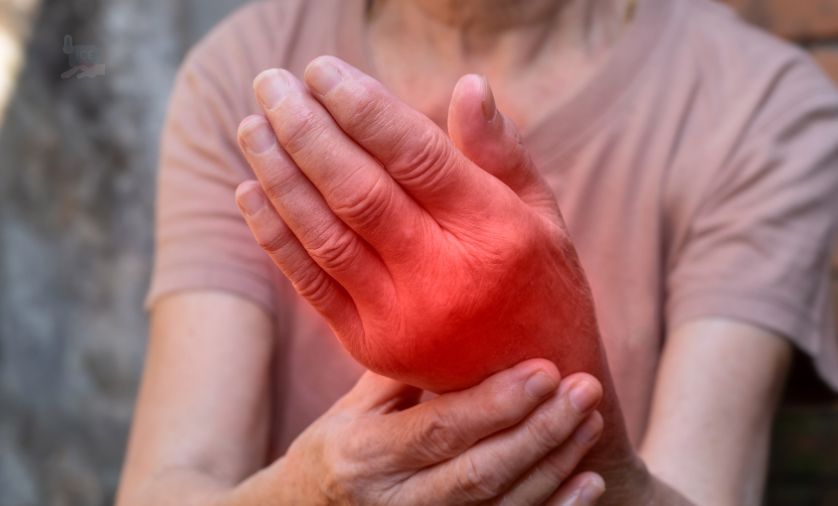Inflammation is a major factor behind everything from chronic pain to brain fog, digestive issues, and fatigue. While short-term inflammation is the body’s way of healing itself, long-term inflammation can lead to serious health problems. The good news? Reducing it doesn’t require drastic lifestyle overhauls or complicated regimens. A few small but meaningful changes can have a powerful impact on how you feel. If you’re ready to start feeling better without making your life harder, here are five simple ways to lower inflammation and improve overall wellness.
Consider Ditching Gluten-Containing Foods
For some people, gluten is just another ingredient in their diet. For others, it’s a trigger that sets off inflammation, digestive distress, and even joint pain. While not everyone needs to avoid gluten, many have found that reducing or eliminating it leads to noticeable improvements in how they feel.
Gluten is a food protein found in wheat, rye, and barley that can contribute to gut irritation, even in those without celiac disease. More people are experimenting with gluten-free diets to see if it makes a difference in their energy levels, digestion, and inflammation. For some people, dining at a gluten free cafe isn’t just a trend—it’s a way for them to explore whether cutting out gluten helps them feel better.
Gluten-free eating doesn’t mean missing out on great food. Many alternatives, such as quinoa, brown rice, and almond flour, provide the same satisfaction without the inflammatory effects. Whether it’s a temporary experiment or a permanent lifestyle shift, reducing gluten can be an easy way to see if it helps your body function more smoothly.
Tinctures to Help Fight Inflammation
Inflammation often starts on a cellular level, which is why more people are turning to plant-based remedies to support their body’s natural healing processes. Tinctures—concentrated liquid extracts of herbs and plants—offer an easy and effective way to incorporate anti-inflammatory compounds into daily routines.
Certain cannabinoids, such as CBC and CBD, have been studied extensively for how they can lower inflammation. The ongoing discussion around CBC vs CBD has highlighted their unique properties—while both have anti-inflammatory effects, they work differently in the body. For example, CBC may have stronger anti-inflammatory benefits, while CBD is known for its calming effects.
Beyond cannabinoids, turmeric tinctures (rich in curcumin), ginger extracts, and boswellia (frankincense) tinctures are also used for their ability to ease inflammation naturally. The best part? A few drops under the tongue or added to a smoothie takes seconds, making tinctures an easy and convenient way to support overall wellness without adding extra effort to your day.
Hydration and Inflammation
Water might not be the first thing that comes to mind when thinking about inflammation, but dehydration can make symptoms worse. Without enough water, the body struggles to flush out toxins, which can contribute to chronic inflammation and joint stiffness.
Many people underestimate how much water they need. Sugary drinks and caffeine-heavy beverages don’t count in the same way—if anything, they can contribute to dehydration. Replacing sodas and energy drinks with filtered water, herbal teas, or mineral-rich electrolyte drinks can make a noticeable difference.
A simple way to tell if you’re drinking enough? Pay attention to energy levels, digestion, and skin clarity. Often, subtle signs of inflammation—such as bloating, fatigue, and headaches—improve just by increasing water intake.
Stress Makes Your Inflammation Worse
Stress isn’t just bad for mental health—it fuels inflammation throughout the body. Chronic stress can lead to the extended release of cortisol, which is a hormone that can increase inflammation and immune system imbalances.
Reducing stress doesn’t mean quitting your job and moving to a remote island (tempting as that may sound). It’s about making small, intentional changes that help reset the nervous system. Deep breathing exercises, short walks outside, and mindfulness practices can help you lower cortisol levels and reduce stress-related inflammation.
Physical movement also plays a role. Exercise, even in small amounts, can help regulate stress hormones and keep inflammation in check. Whether it’s yoga, stretching, or simply standing up more often throughout the day, movement signals the body to shift out of a stress response and into repair mode.
Sugar as an Inflammation Trigger
Sugar is everywhere, and while a little won’t cause major damage, too much can lead to chronic inflammation. Refined sugars spike blood sugar levels, causing a chain reaction that can increase inflammatory compounds.
Cutting back doesn’t mean eliminating every sweet treat—it’s about being mindful of where sugar hides. Many processed foods, condiments, and even “healthy” snacks contain more sugar than expected. Choosing whole, unprocessed foods, and swapping refined sugar for natural alternatives like honey or monk fruit can help.













